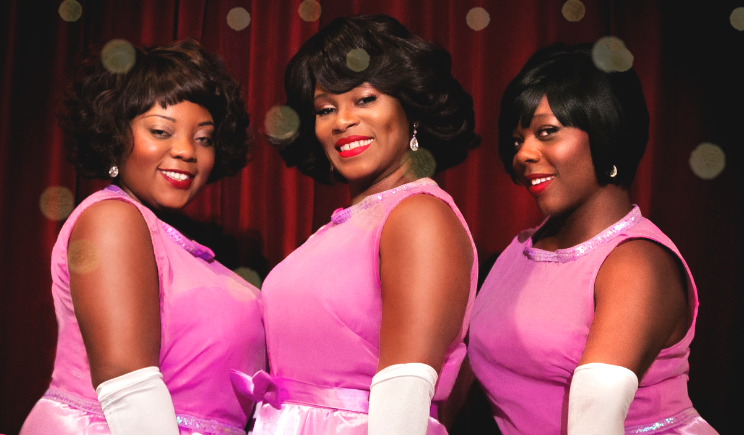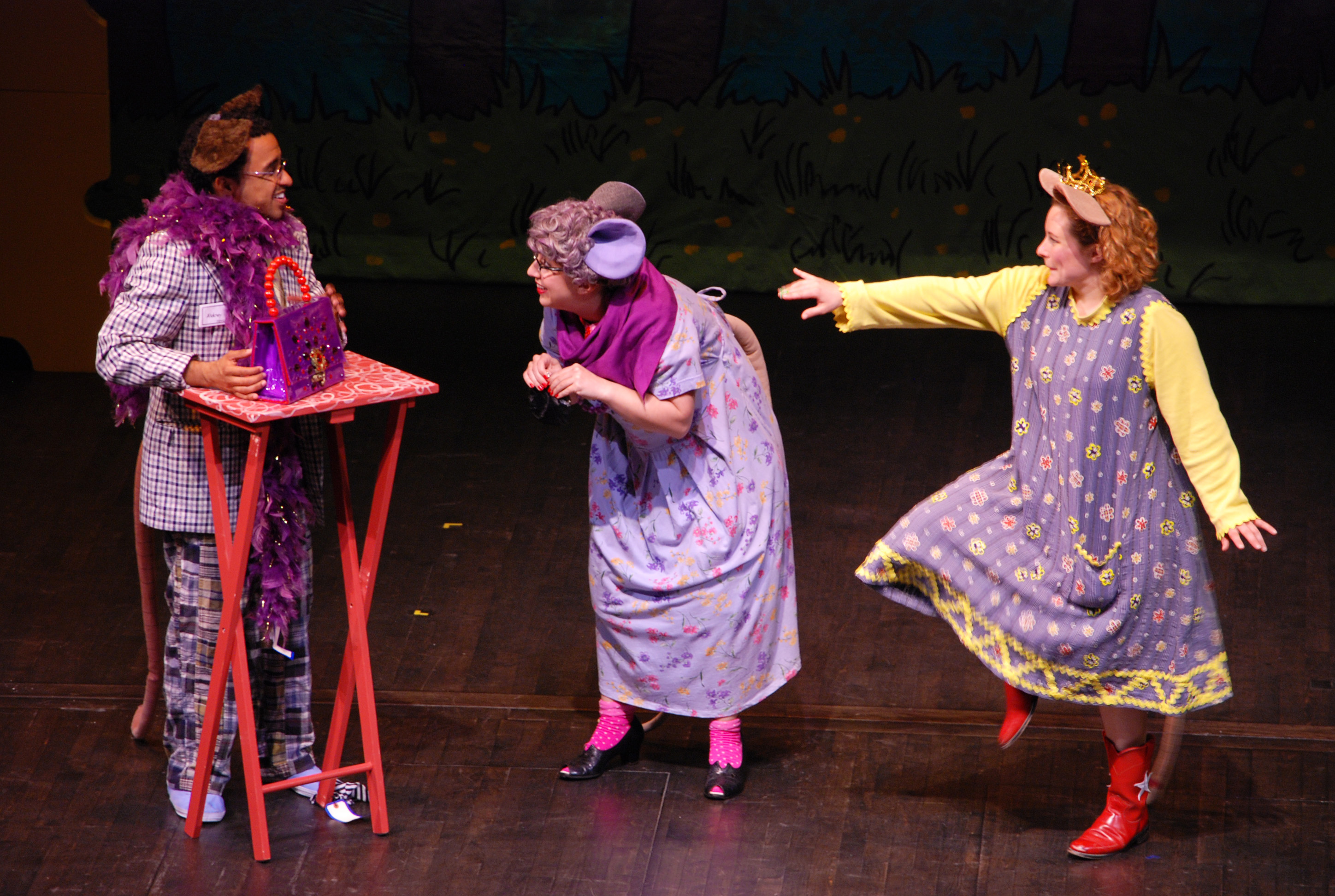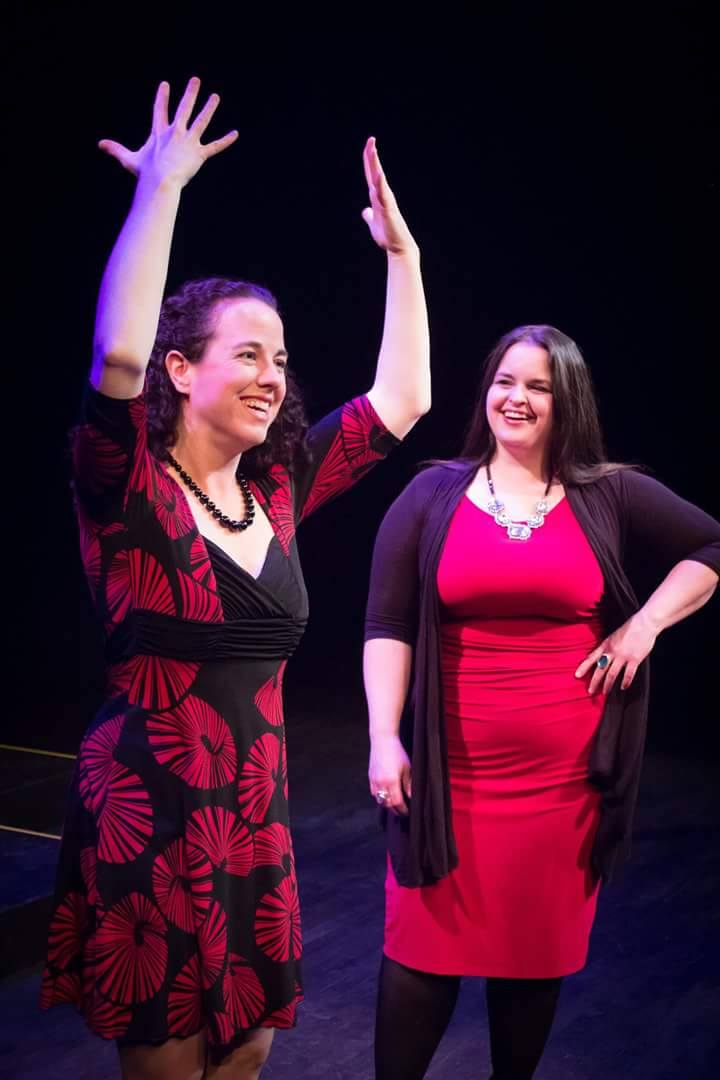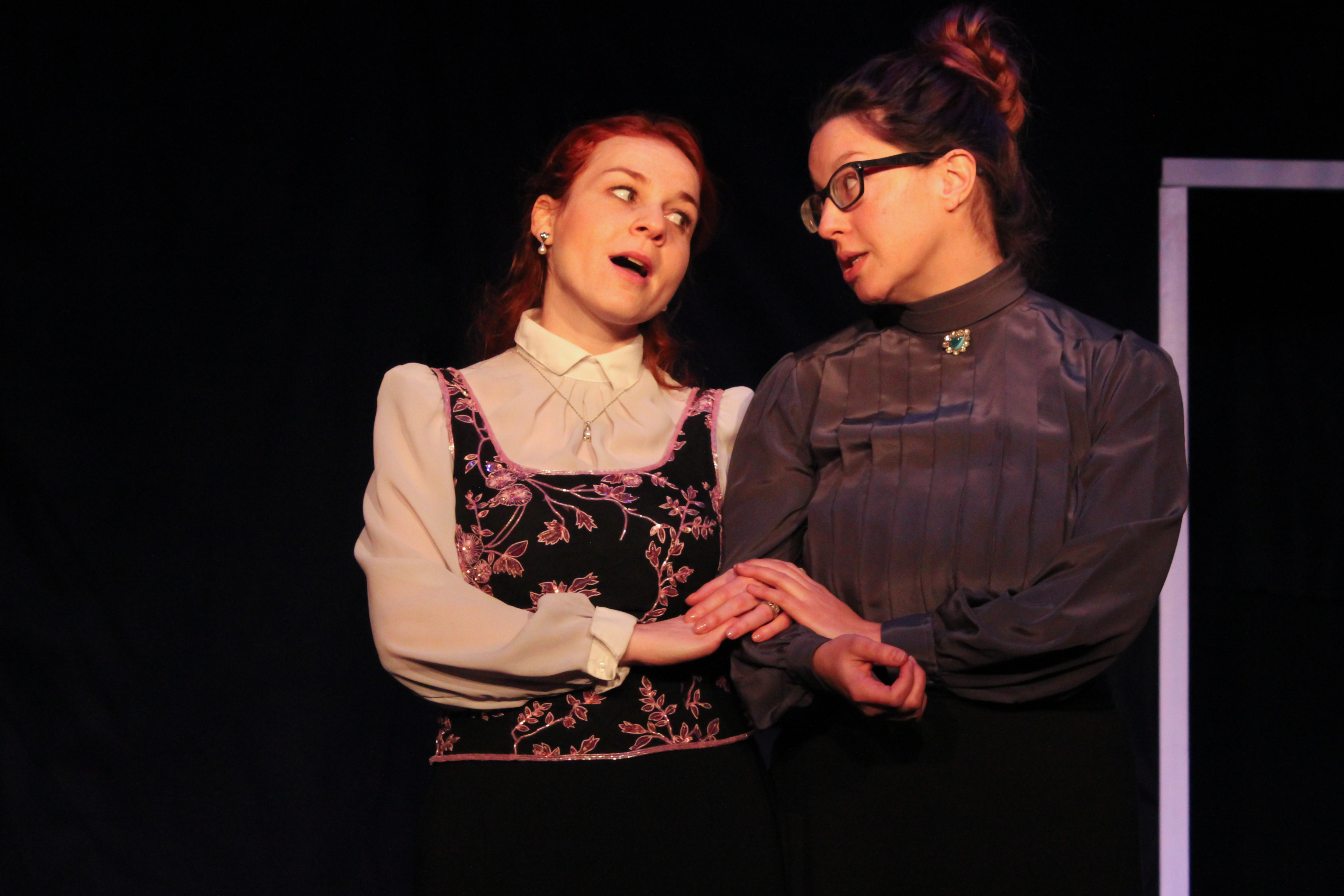Erica Denise, Cicily Bullard, & Tymika Prince. Photo: CenterStage
Dreamgirls
Music by Henry Krieger, Book & Lyrics by Tom Eyen
Directed by Redline Performing Arts (A. Ramont)
Review by Keith Waits
Entire contents are copyright © 2019 Keith Waits. All rights reserved.
I’ve never been certain if Dreamgirls is a great musical, but it is a great story. Modeled on the careers of The Supremes, Diana Ross, and Motown founder Berry Gordy, it is built for speed and offers a healthy dose of female empowerment in response to the entertainment industry’s inherent exploitation of women, but the score only occasionally rises above serviceable and the book relies a bit too much on cliché, yet it also a reason to populate the stage with talented Black actors, singers, and dancers and celebrate the rise of African American popular culture. Whatever its faults, Dreamgirls draws a clear line from Gordy to entrepreneurs like Jay Z.
The Dreamettes: Effie White (Erica Denise), Deena Jones (Cicily Bullard), and Lorrell Robinson (Tymika Prince) are young and naïve but make an impression at a talent competition on Curtis Taylor, Jr. (Yehudah Jai Husband), a hustling would-be-manager. He quickly secures them a gig as background singers to Jimmy Early (Sadik Ibn-Mohammed). Their fortunes rise while his fall, much like A Star Is Born. Jimmy seems based on James Brown more than Supremes label mates Smoky Robinson or Marvin Gaye, and Mr. Ibn-Mohammed brings an outrageous Bantam-rooster strut to his characterization that dominates all of his scenes.
Yehudah Jai Husband makes Curtis perfectly arrogant and cock-sure, and the duplicitous in his management style leads to the division of the original group at the end of the first act. That moment culminates in “And I’m Telling You I’m Not Going”, which is one the most daunting of iconic show tunes. Jennifer Holliday’s performance in the original Broadway production has become a legend, but judging from the video evidence, including that year’s Tony Awards broadcast, it was a volcanic vocal eruption of volume without the balance of grace and subtlety also present in the scene. Erica Denise’s delivery of the crucial number is powerful but more measured, in part because Ms. Denise was suffering some stress on her vocal cords and had a second act to work through, but also because she makes choices for the character here that don’t require a take no prisoners attack to fully realize the defiance in Effie’s moment of rejection.
Instead of overwhelming the show, she returns to sing ‘I Am Changing”, a more introspective and revealing song that perfectly suits Ms. Denise’s voice and gives the narrative more depth. She knocks it out of the park.
Act two charts Deena’s rise to superstardom and Cicily Bullard does a fine job of lifting the character above the stereotype of the Other Woman, illustrating the repetitive patterns of manipulation and emotional abuse visited upon women by too many powerful men.
The story also expands to spotlight a relationship between Lorell and Jimmy that again affords Tymika Prince room to show what she can do, which is always worthwhile and again reinforces the ways in which women in this time and place usually received the short end of the stick.
The continuation of Effie’s story is of an artist struggling to remain authentic and finally fighting the patriarchal power structure to keep what is rightfully hers. Derrick Palmer as Marty, the old-school manager supplanted by Curtis, and Shaquille Towns as Effie’s songwriter brother C.C. also shine in these later scenes.
While the story of Dreamgirls is the show’s greatest strength, I wish the score worked harder to fully embrace the music it celebrates. There is a lot of talk about R&B and Soul music, but little of it present on the stage. When Curtis speaks of the new sound he endeavors to deliver, the song “One Night Only” is performed twice, once by Effie as a flavorful soul ballad, and once by Deena and the Dreams as an up-tempo disco number. But most of the score is more rooted in Broadway tradition rather than the elemental rhythms of the Black musicians that drove change in America in the middle of the 20th century.
I wish I could gift CenterStage a new wireless sound system for this talented cast. Glitches and missed cues on the mics once again dogged the production. The lighting and sets were dynamic, and the costumes worked well in nailing the period. Unfortunately, the orchestra was uneven and was leaden when it needed to be fleet and nimble.
The room at JCC was reconfigured, with the bleacher platforms replaced by a mix of table and auditorium seating. I don’t know if this is permanent, but the resulting nightclub vibe was perfect for this show.
Dreamgirls is a perfect show for CenterStage but a complicated challenge nonetheless. Opening night found an accomplished cast who have just found the confidence that the show demands. Whatever we might wish Dreamgirls to be, it remains a classic and important musical that delivers a vivid and thoughtful evening of theatre.
Dreamgirls
September 5, 7, 9, 14, 15, 16 & 19 @ 7:30 pm
September 8, 16 & 22 @ 2 pm
Tickets are $22 in advance, $24 on Saturday night and Sunday matinees, $24 “at the door” charge
CenterStage
Jewish Community Center
3600 Dutchman’s Lane
Louisville, Kentucky 40205
jewishlouisville.org/the-j/centerstage
Keith Waits is a native of Louisville who works at Louisville Visual Art during the days, including being the host of LVA’s Artebella On The Radio on WXOX 97.1 FM / ARTxFM.com, but spends most of his evenings indulging his taste for theatre, music and visual arts. His work has appeared in LEO Weekly, Pure Uncut Candy, TheatreLouisville, and Louisville Mojo. He is now Managing Editor for Arts-Louisville.com.





